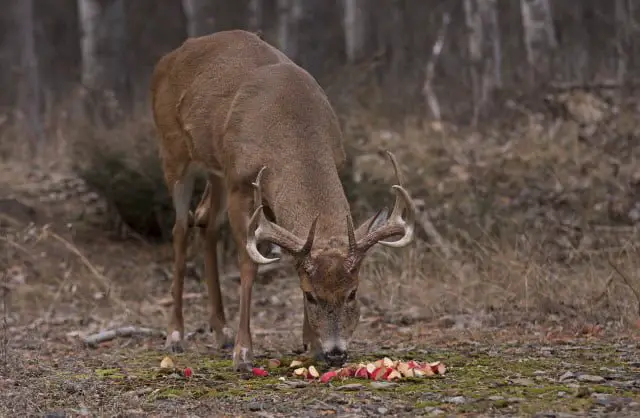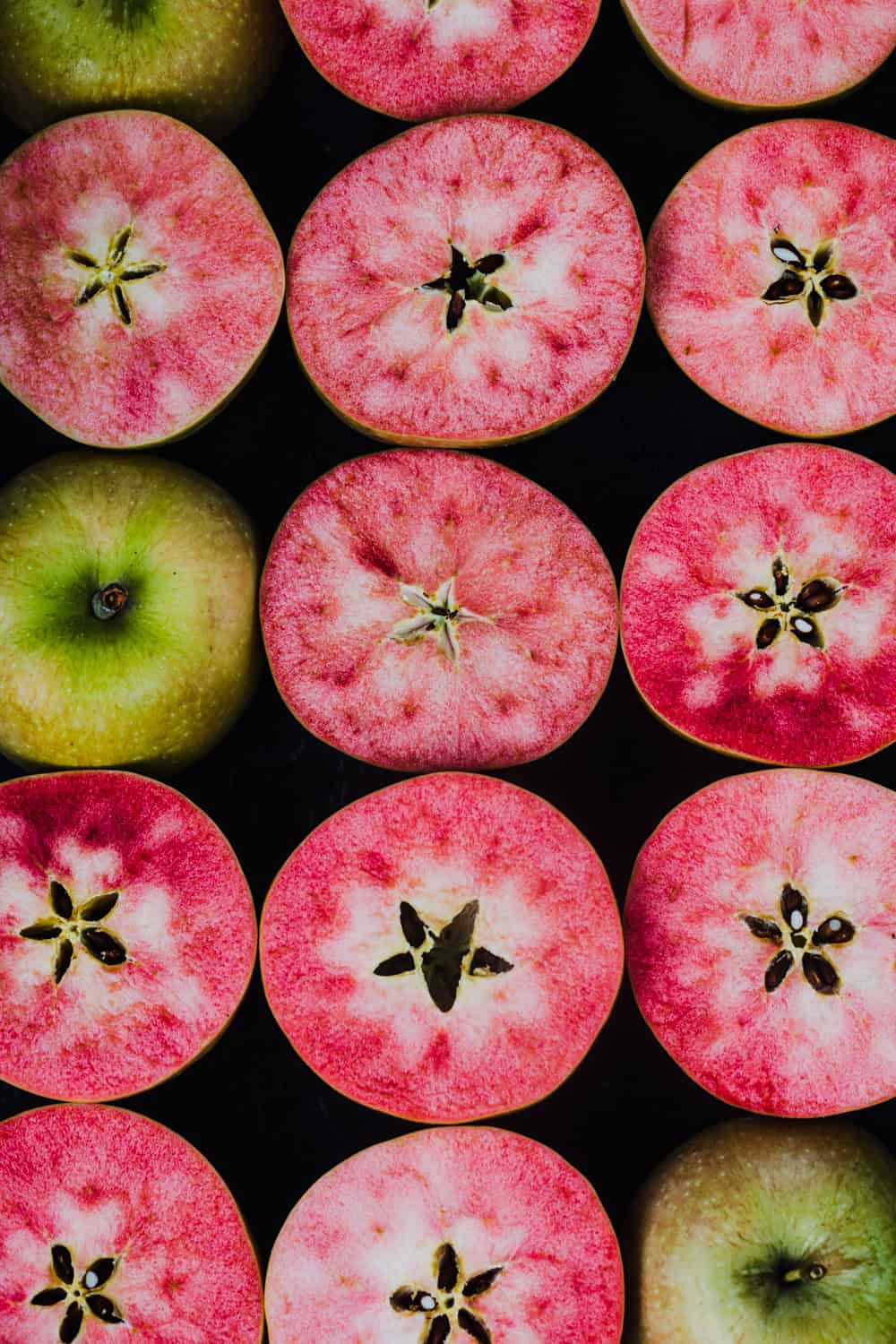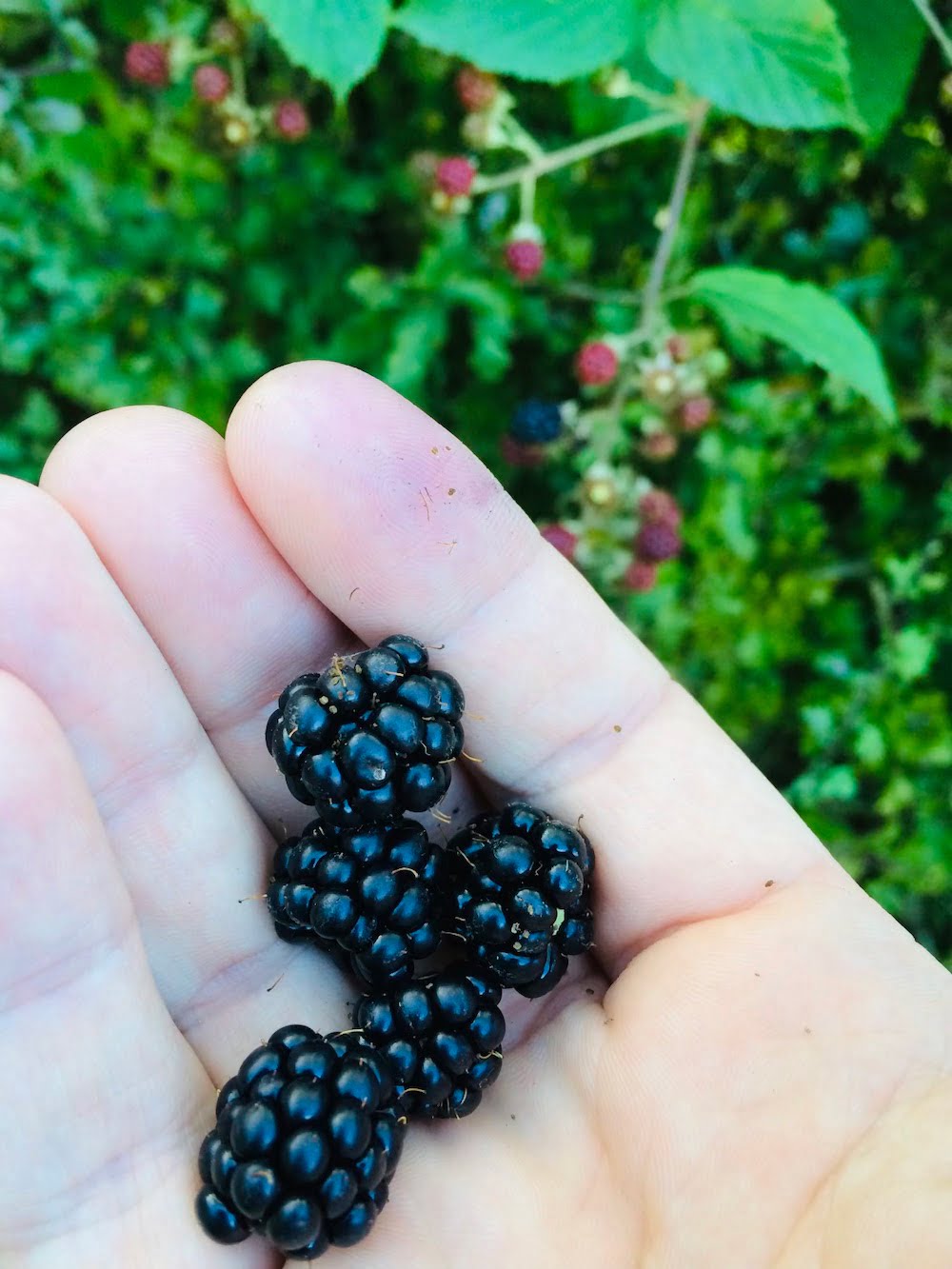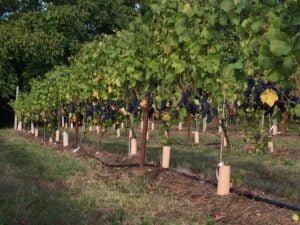Deer apples, also known as wildlife apples or deer attractant, are a type of fruit that plays a crucial role in attracting and feeding deer. These apples are specifically designed to entice deer, as their scent and taste are irresistible to these majestic creatures. In this article, you will gain an understanding of what exactly deer apples are, how they serve as a vital source of nutrition for deer, and the various benefits they provide to both the animals and their habitats. So, let us explore the fascinating world of deer apples and discover why they are an essential component in the realm of wildlife conservation.
What Are Deer Apples
Deer apples are a type of fruit that is commonly used as a food source for deer. They are called deer apples because they are primarily consumed by deer, although other animals such as squirrels and rabbits may also enjoy them. These apples are typically large in size and have a sweet, tart flavor that deer find irresistible. They are a popular choice for hunters and wildlife enthusiasts who want to attract deer to their property.
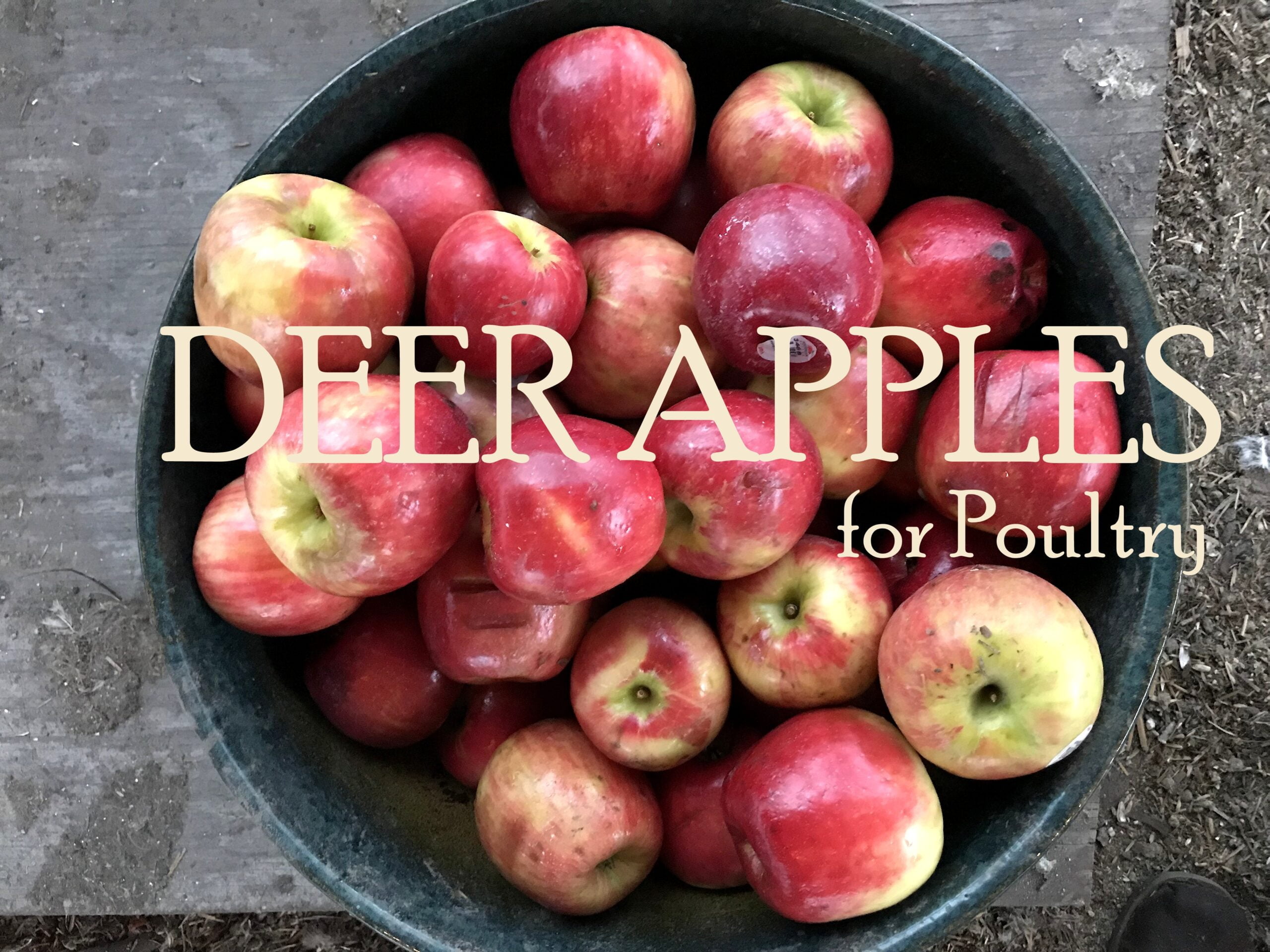
Definition of Deer Apples
Deer apples are essentially regular apples that have been specifically chosen for their appeal to deer. They are typically larger and sweeter than traditional apples, making them more enticing to deer. These apples are often harvested and sold specifically for the purpose of attracting and feeding deer. They are usually used as a supplemental food source during times when natural forage may be scarce, such as during the winter months.
Benefits of Deer Apples
The use of deer apples as a food source for deer offers several benefits. Firstly, it helps to attract deer to a particular area, whether it be a hunting ground or a wildlife viewing spot. This can be advantageous for hunters who are looking to increase their chances of a successful hunt, or for wildlife enthusiasts who simply enjoy observing deer. Additionally, providing deer with a supplemental food source like deer apples can help support their overall health and well-being, especially during periods of nutritional stress.
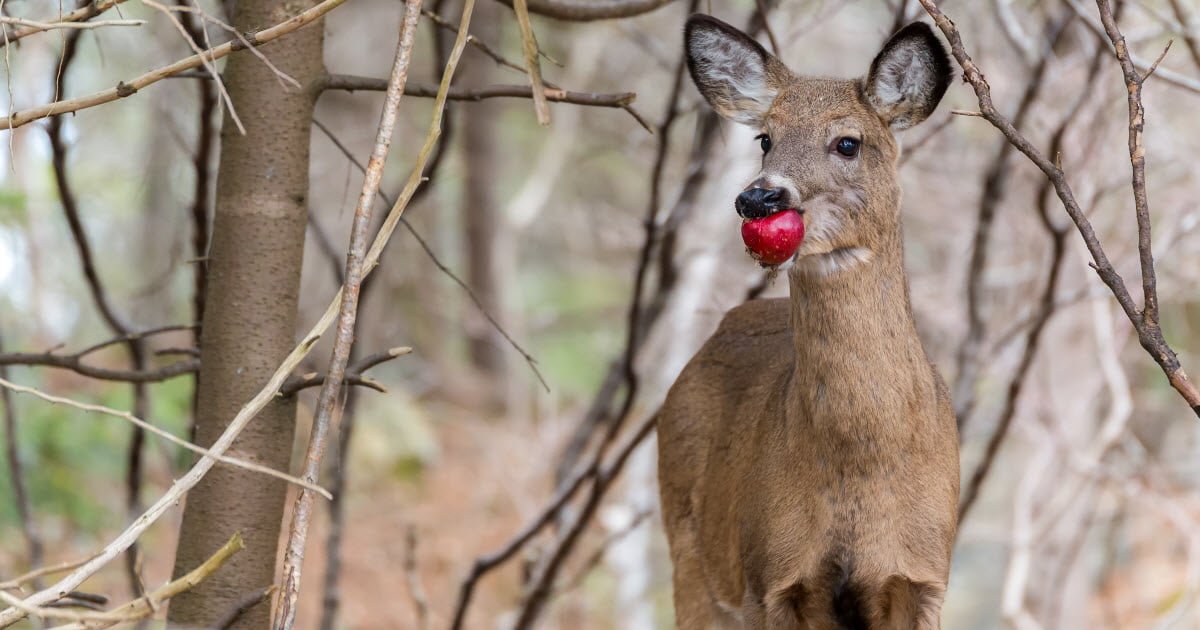
Types of Deer Apples
While there are many different varieties of apples, not all of them are equally appealing to deer. Some popular types of deer apples include the Red Delicious, Fuji, and Golden Delicious varieties. These apples are known for their sweetness, juiciness, and overall appeal to deer. It is important to choose apples that are firm and not overripe, as deer prefer apples that are still in good condition. Additionally, organic apples are often recommended, as they are free from pesticides and other potentially harmful chemicals.
How to Use Deer Apples
To use deer apples effectively, there are a few key considerations to keep in mind. Firstly, it is important to place the apples in an area that is easily accessible to deer. This can include open fields, clearings, or near water sources that deer frequent. It is also important to consider the timing of when the apples are provided. Typically, apples are most effective at attracting deer during the fall and winter months when other food sources may be limited. Finally, it is recommended to space the apples out throughout the selected area to encourage deer to move around and prevent dominance by a single deer.
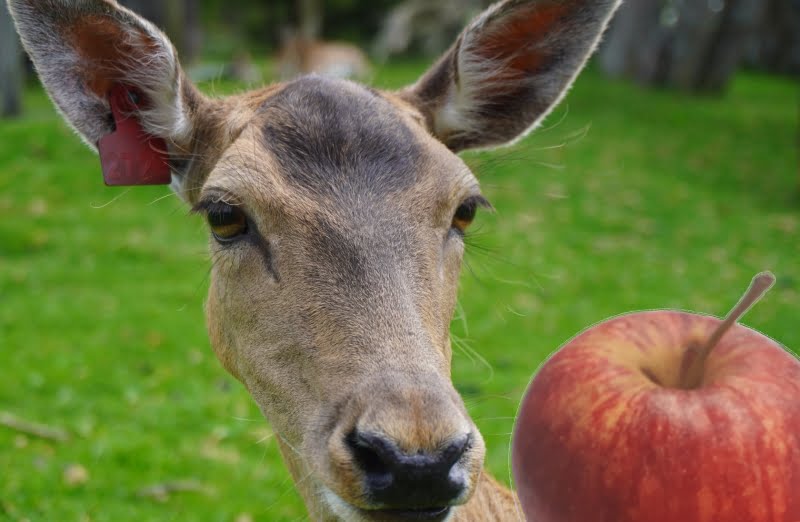
Where to Find Deer Apples
Deer apples can often be found at local stores that specialize in hunting and outdoor recreation. These stores may carry bags or buckets of pre-selected deer apples. Additionally, some farmers or orchards may offer deer apple harvesting experiences, where individuals can pick their own apples specifically for deer feeding. Another option is to connect with local hunting or wildlife organizations, as they may have connections or resources for obtaining deer apples. It is important to keep in mind that availability may vary depending on the region and time of year.
Seasonality of Deer Apples
The availability of deer apples is largely dependent on the seasonal harvest of apples. Typically, deer apples are most abundant in the late summer and fall months when apple orchards are in full production. This is the optimal time to obtain fresh, high-quality apples that are appealing to deer. However, it is important to note that deer apples can also be stored and used throughout the year, as long as they are properly preserved and maintained in a cool, dry environment.

Nutritional Value of Deer Apples
Deer apples are a good source of important nutrients for deer. They contain significant amounts of carbohydrates, which provide energy for deer to sustain themselves during periods of increased activity or when other food sources are limited. Additionally, deer apples contain essential vitamins and minerals that contribute to the overall health and well-being of deer. Some of the key nutrients found in deer apples include Vitamin C, potassium, and dietary fiber. However, it is worth noting that while deer apples can be a valuable supplemental food source, they should not replace a deer’s natural diet of browse and forage.
Allergies and Risks Associated with Deer Apples
In general, deer apples are considered safe for deer to consume. However, there are a few potential risks and precautions to be aware of. Firstly, it is important to ensure that the apples provided to deer are free from any harmful chemicals or pesticides. Organic apples are often recommended to minimize the risk of exposing deer to potentially harmful substances. Additionally, overfeeding deer apples can lead to digestive issues or excessive weight gain, which can have negative impacts on the overall health of deer. It is recommended to provide deer apples as a supplement to a balanced and varied diet.
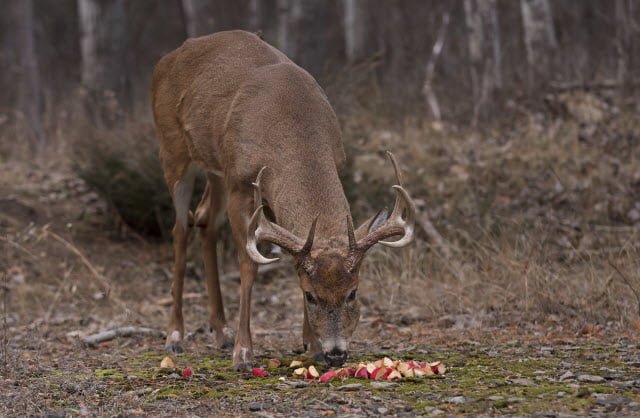
Alternatives to Deer Apples
While deer apples are a popular choice for attracting and feeding deer, there are also alternative options available. One option is to provide other types of fruit that are appealing to deer, such as pears, plums, or persimmons. These fruits can offer similar benefits to deer apples and provide variety in the deer’s diet. Another alternative is to plant native vegetation that is naturally attractive to deer. This can include various types of browse and forage plants, which can provide a more natural and sustainable food source for deer.
Frequently Asked Questions About Deer Apples
Q: Can deer apples be fed to other animals besides deer?
A: While deer apples are primarily consumed by deer, other animals such as squirrels and rabbits may also enjoy them. However, it is important to note that some animals may have difficulty digesting apples or may have dietary restrictions that prevent them from consuming certain foods.
Q: Do deer apples attract only deer, or will other wildlife be attracted as well?
A: While deer apples are mainly used to attract deer, they may also attract other wildlife that are drawn to the scent and taste of the apples. This can include animals such as raccoons, opossums, and birds.
Q: Are there any specific regulations or guidelines for using deer apples?
A: Regulations and guidelines for using deer apples may vary depending on the region and specific circumstances. It is important to consult local hunting regulations and wildlife management agencies to ensure compliance with any applicable laws or restrictions.
Q: Can deer apples be used for hunting purposes?
A: Yes, deer apples can be used as an effective tool for hunting purposes. By strategically placing deer apples in areas frequented by deer, hunters can increase their chances of attracting deer and increasing their hunting success.
Q: Can deer apples be used year-round, or are they only effective during certain seasons?
A: While deer apples are most commonly used during the fall and winter months when other food sources may be scarce, they can be stored and used year-round. However, it is important to rotate and replenish the apples periodically to ensure freshness and appeal to deer.
In conclusion, deer apples are a popular choice for attracting and feeding deer. They are a type of fruit that is appealing to deer due to their size and sweetness. By providing deer with a supplemental food source like deer apples, individuals can attract and support deer populations, whether for hunting or wildlife observation purposes. However, it is important to use deer apples responsibly and in conjunction with a balanced diet for deer. By following guidelines and considering the nutritional needs of deer, deer apples can be an effective tool for managing and enjoying deer populations.
